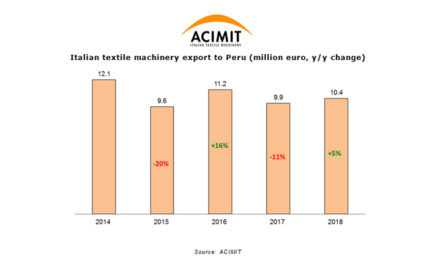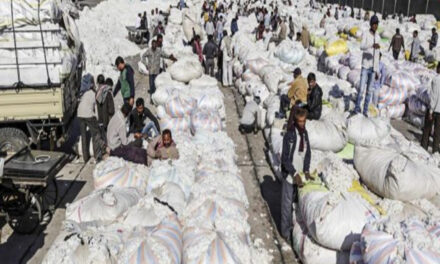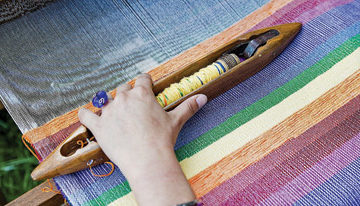 The Better Cotton Initiative (BCI) says its members sourced a record 1.7 mn tonnes of its ‘Better Cotton’ in 2020 – a year-on-year increase of 13 per cent. The organisation says its ‘demand-driven funding model’ means this directly translates into increased investment in training for cotton farmers on more sustainable practices.
The Better Cotton Initiative (BCI) says its members sourced a record 1.7 mn tonnes of its ‘Better Cotton’ in 2020 – a year-on-year increase of 13 per cent. The organisation says its ‘demand-driven funding model’ means this directly translates into increased investment in training for cotton farmers on more sustainable practices.
The BCI brings together the entire cotton sector, from farmers, ginners and spinners to civil society organisations and major global retailers and brands, in its bid to establish more sustainable cotton as the norm.
Better Cotton – the cotton grown by licensed BCI Farmers – forms a significant part of many fashion companies’ portfolios of more sustainable cotton, alongside organic, Fairtrade and recycled cotton.
Paula Lum Young-Bautil, the BCI’s membership and supply chain deputy director, commented: “BCI members remained focused on their commitments to sustainability through what was a challenging year.
“From civil society members supporting farmers on protective measures for COVID-19, to commercial members continuing to source Better Cotton, and thereby invest in cotton farming communities, BCI Members were more active and engaged than ever. Now we look ahead to 2021 and supporting even more ambitious sourcing plans from our growing membership.”
H&M’s environmental sustainability manager Cecilia Brannsten said: “H&M Group wants to lead the change towards circular and climate positive fashion, and one of the key tools to do this is to shift from conventional cotton to cotton sourced in a more sustainable way.
“We have come a long way on this journey and it’s positive that an increasing number of companies, including H&M Group, are sourcing more sustainable cotton, including cotton sourced through the Better Cotton Initiative.
“Contributing to real impact at farm level to help cotton growers to embrace environmentally friendlier, and socially and economically sustainable farming methods is crucial to us and BCI allows us to achieve that.”
BCI’s 2020 statistics also reveal that even more Better Cotton was produced than the amount sourced by brands and retailers, with spinners sourcing 2.7 million tonnes in total from farmers.










